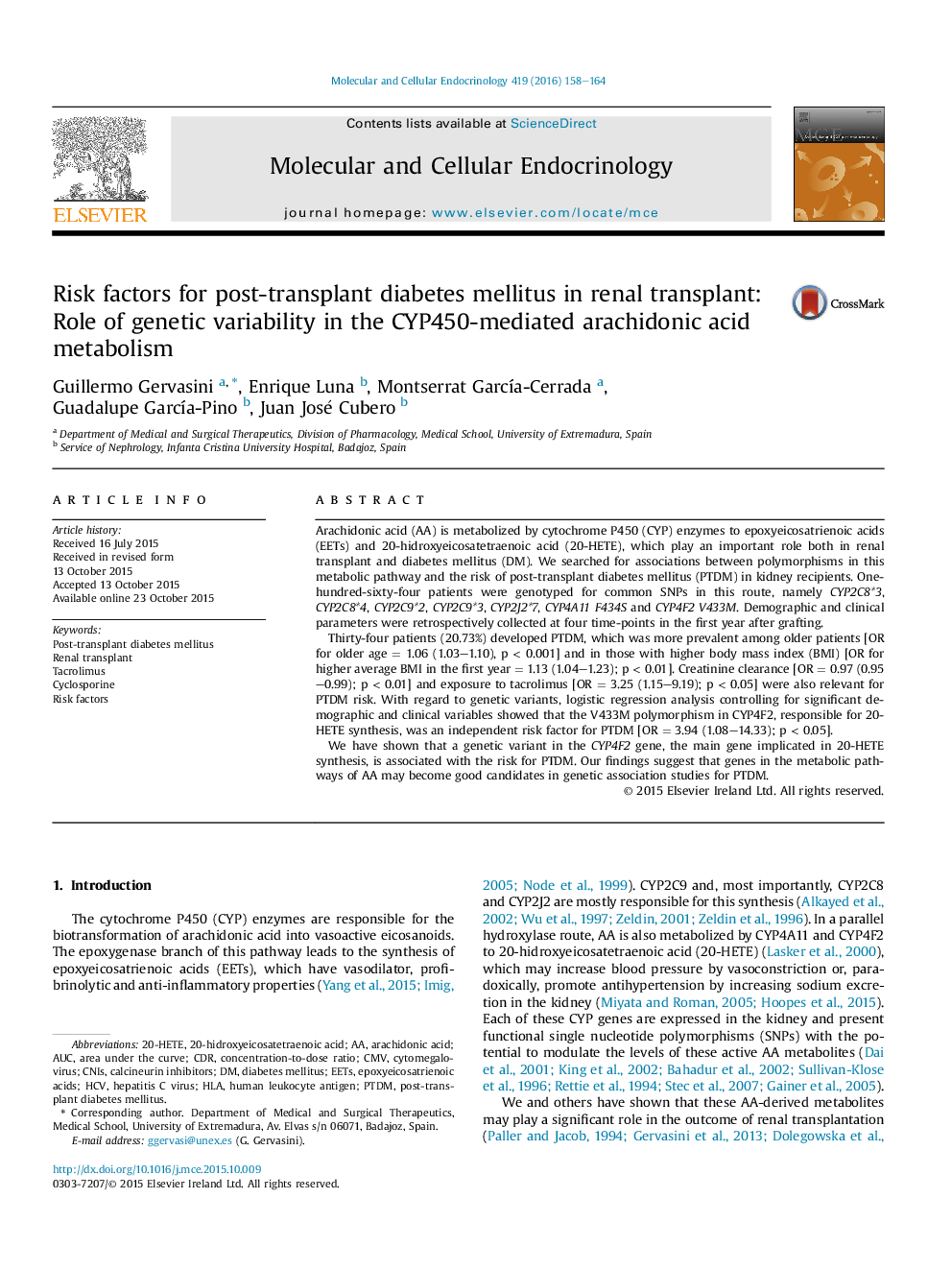| کد مقاله | کد نشریه | سال انتشار | مقاله انگلیسی | نسخه تمام متن |
|---|---|---|---|---|
| 2195722 | 1550860 | 2016 | 7 صفحه PDF | دانلود رایگان |
• Arachidonic-derived eicosanoids play an important role both in renal transplant and diabetes.
• SNPs in these pathways may be important for PTDM risk but this has not been tested.
• We examined the impact of SNPs and clinical variables on PTDM in renal transplant.
• BMI, age, creatinine clearance and exposure to tacrolimus were associated with PTDM.
• The V433M SNP in 20-HETE-synthesizing gene CYP4F2 was an independent risk factor.
Arachidonic acid (AA) is metabolized by cytochrome P450 (CYP) enzymes to epoxyeicosatrienoic acids (EETs) and 20-hidroxyeicosatetraenoic acid (20-HETE), which play an important role both in renal transplant and diabetes mellitus (DM). We searched for associations between polymorphisms in this metabolic pathway and the risk of post-transplant diabetes mellitus (PTDM) in kidney recipients. One-hundred-sixty-four patients were genotyped for common SNPs in this route, namely CYP2C8*3, CYP2C8*4, CYP2C9*2, CYP2C9*3, CYP2J2*7, CYP4A11 F434S and CYP4F2 V433M. Demographic and clinical parameters were retrospectively collected at four time-points in the first year after grafting.Thirty-four patients (20.73%) developed PTDM, which was more prevalent among older patients [OR for older age = 1.06 (1.03–1.10), p < 0.001] and in those with higher body mass index (BMI) [OR for higher average BMI in the first year = 1.13 (1.04–1.23); p < 0.01]. Creatinine clearance [OR = 0.97 (0.95–0.99); p < 0.01] and exposure to tacrolimus [OR = 3.25 (1.15–9.19); p < 0.05] were also relevant for PTDM risk. With regard to genetic variants, logistic regression analysis controlling for significant demographic and clinical variables showed that the V433M polymorphism in CYP4F2, responsible for 20-HETE synthesis, was an independent risk factor for PTDM [OR = 3.94 (1.08–14.33); p < 0.05].We have shown that a genetic variant in the CYP4F2 gene, the main gene implicated in 20-HETE synthesis, is associated with the risk for PTDM. Our findings suggest that genes in the metabolic pathways of AA may become good candidates in genetic association studies for PTDM.
Journal: Molecular and Cellular Endocrinology - Volume 419, 5 January 2016, Pages 158–164
